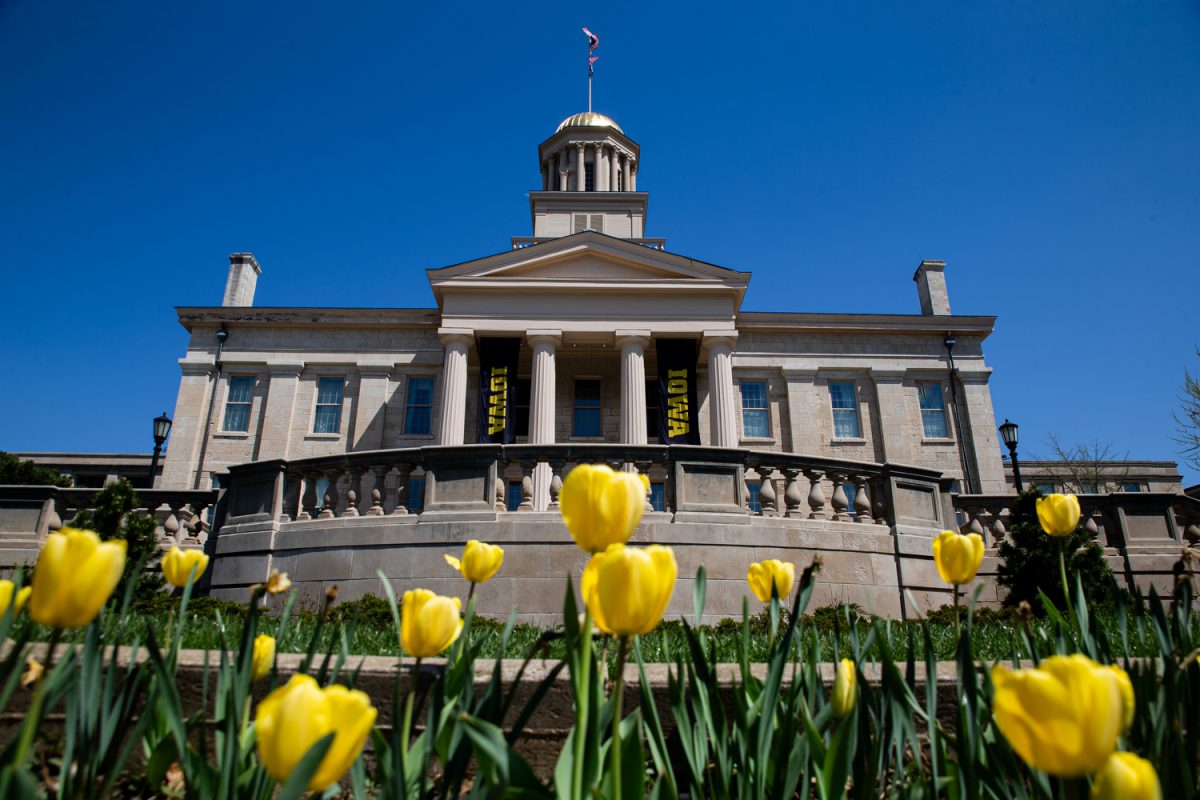As the job market becomes more demanding and post-undergraduate opportunities become more limited, an increasing number of students are looking for graduate opportunities.
In response, the University of Iowa is offering the Undergraduate-to-Graduate, or U2G, program as a way for students to complete their bachelor’s and master’s degrees on an accelerated timeline.
“It’s a win-win for both the student and for the university,” UI Graduate College Academic Affairs Coordinator Fran Boyken said. “It creates a pathway from their bachelor’s degree to graduate school that’s both efficient and supportive for the student.”
The program, which began in 2009, has graduated over 600 students, Boyken said. Currently, nearly 300 students are enrolled, up from 200 five years ago.
While other universities nationwide offer similar programs, UI was one the earlier adopters as a public university, Boyken said.
UI student Joseph Improta is in his final semester of a master’s in mechanical engineering. While Improta did not originally intend to go to grad school, a conversation with his advisor at the end of his sophomore year made him aware of the U2G program.
“I figured if it’s only one more year for my master’s, I can totally do it,” he said.
Kenneth Mack is in his graduate year and will receive his master’s in library and information system in May 2026. He became aware of the program after seeing informational flyers in the library.
“It was kind of a decision I made on my own, and then conferred with my advisor to be sure that was something that was feasible for me, at least financially,” Mack said. “Once I found out it I was like, ‘Alright, I’m definitely doing it.’”
U2G offers programs across all the colleges, including education, engineering, nursing, public health, and English, Boyken said. Students typically apply during their third undergraduate year, then spend a blended year taking both undergraduate and graduate courses. In the fifth year, students enroll fully in their graduate degree program.
A study by The Burning Glass Institute showed 52 percent of graduates who had only received a bachelor’s degree were underemployed, or working a job below their qualifications a year after graduation. Those who went back and completed a graduate degree typically experienced smaller numbers and greater protection against underemployment.
“We know that, in some fields, master’s degrees are becoming a more common requirement for entry level positions,” Boyken said. “So, after completing the grad degree, U2G students are positioned to join the workforce as well as qualified professionals.”
Aside from equipping students for the job market, the program has the added benefit of saving students, such as Improta and Mack, time and money.
RELATED: New College of Education program sees success in first semester – The Daily Iowan
“Time and money is a pretty big part of it,” Improta said. “Being a grad student in general, if you TA for one class, you get your tuition covered.”
“First and foremost I think the biggest [benefit] is the cost,” Mack said.
Mack said during his blended year, or his fourth undergraduate year, the graduate level classes were offered to him at an undergraduate level cost.
Improta and Mack are not the only students who have benefited financially from the program, as Boyken said saving time and money is one of the biggest draws to the program.
“I would say they’re probably saving about a semester of both time and tuition and other costs of being a student,” she said.
Improta also said he appreciated already having an established connection with the professors in his program and not having to adjust to a completely new city or school for his master’s.
“You are already part of the community here, and it allows you to foster those relationships with professors that you may have had in undergrad and have enjoyed,” he said. “If you were to go to another university, you would have to kind of figure out and build those relationships with the faculty.”
Mack also said he thought it was beneficial to be able to “test the waters” before fully committing to a program.
“Getting professional development and knowledge in the field before actually committing, it felt like I was able to test the waters a little bit before actually, like, investing my time and myself into a full master’s program,” he said.



